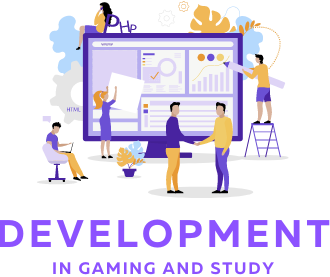Exploring the Future of Cloud Gaming: Convenience vs. Quality
Online gaming has transformed the way people experience entertainment, creating a dynamic landscape that blends social interaction with demo spaceman immersive gameplay. This evolution reflects broader technological advancements and changing cultural attitudes toward gaming, moving it from a solitary activity to a community-driven phenomenon.
At the heart of online gaming is the ability to connect with others. Players from diverse backgrounds can join forces in cooperative missions or face off in competitive arenas, transcending geographical boundaries. This unique aspect of online gaming fosters friendships that often extend beyond the virtual world. Many gamers share their personal stories, strategies, and experiences, creating bonds that enrich their gaming experience and provide a sense of belonging.
The rise of streaming platforms has significantly influenced the gaming culture. Websites like Twitch and YouTube have turned gaming into a spectator sport, allowing players to broadcast their gameplay to a global audience. This has not only transformed how games are consumed but has also created new forms of interaction. Viewers can engage with streamers in real time, participating in chats and discussions about gameplay, strategies, and even personal anecdotes. This interactivity enhances the experience, making gaming a shared event rather than a solitary endeavor.
Mobile gaming has played a pivotal role in expanding access to online games. With smartphones now an essential part of daily life, titles like Fortnite and Clash of Clans have reached audiences that might not otherwise engage with gaming. The convenience of mobile platforms allows individuals to play at their own pace, making gaming accessible to a broader demographic. This influx of players has diversified the gaming community, introducing new perspectives and experiences.
Despite its many benefits, the online gaming space faces challenges that must be addressed. Toxicity and harassment can create hostile environments that deter participation. Negative behaviors such as trolling can overshadow the positive interactions that many players seek. To combat these issues, developers and communities are increasingly working to cultivate respectful and inclusive environments. Initiatives aimed at promoting positive behavior and addressing toxicity are essential for fostering healthy gaming cultures.
The competitive aspect of online gaming has also gained prominence, with the rise of esports highlighting the skill and strategy involved in gaming. Professional gamers now compete in tournaments that attract large audiences and sponsorship deals, elevating gaming to a respected form of competition. Titles like League of Legends and Overwatch showcase not just the players’ skills but also the dedication and teamwork required to succeed. This growth has opened new career paths for talented gamers, validating gaming as a serious profession.
Looking toward the future, online gaming holds immense potential for innovation. Advances in virtual reality and augmented reality are set to revolutionize the way players interact with their games. These technologies promise to create immersive experiences that blur the lines between the digital and physical worlds, allowing players to explore rich environments in ways that feel profoundly real. Additionally, the integration of artificial intelligence could lead to more personalized gameplay, adapting challenges and narratives to suit individual player preferences.
As the online gaming community expands, discussions about mental health are increasingly important. While gaming can provide a valuable escape and foster social connections, concerns about addiction and excessive screen time need to be addressed. Many developers are now prioritizing player well-being, promoting responsible gaming practices and providing resources to help individuals maintain a healthy balance between gaming and other aspects of life.
In summary, online gaming has evolved into a multifaceted cultural phenomenon that reflects the complexities of modern life. It serves as a platform for creativity, connection, and competition, continuously adapting to the diverse interests of its players. As technology progresses and new trends emerge, online gaming will remain a vital part of our cultural landscape, offering endless opportunities for exploration, friendship, and enjoyment. Whether seeking adventure, community, or simply a moment of relaxation, the world of online gaming invites everyone to engage in its expansive universe.…

